
Kim Mellius Flyvholm Larsen was a Danish rock and pop musician. He was a major selling Scandinavian act with over 5 million albums sold.

Gasolin' were a Danish rock band from Christianshavn, Copenhagen, formed by Kim Larsen, Franz Beckerlee, and Wili Jønsson in 1969. Their first drummer was the late Bjørn Uglebjerg. He was replaced by Søren Berlev in 1971. At their formation, the guitar playing of Franz Beckerlee was inspired by Jimi Hendrix and the vocals and lyrics of Larsen were inspired by Bob Dylan, while the rhythm playing of Jønsson and Berlev owed much to The Beatles. However, they would soon develop their own musical style. The pop sensibility of Kim Larsen, the artistic attitude of Franz Beckerlee and the musical competence of Wili Jønsson would prove to be a recipe for success. Gasolin's lyrics were generally written by the entire group, often with the assistance of their friend Mogens Mogensen.
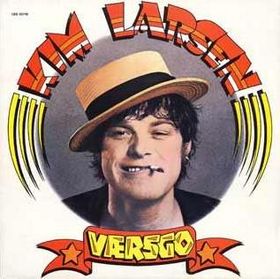
Værsgo is the debut album of Kim Larsen who formed Gasolin' in 1969 with Wili Jønsson and Franz Beckerlee. It was released in 1973 while he was still a member of Gasolin', and the album contains songs which were not found suitable for Gasolin'. With 17 songs, it was apparent that Kim Larsen had a lot of songs to offer. It is also apparent why these songs did not fit into the Gasolin' frame. Unlike the hard and disciplined rock of Gasolin' the songs on Værsgo have a loose and cosy atmosphere with a lot of romance and sentimentality and childlike innocence. The album became a big surprise hit and it is considered to be a classic in Danish popular music. In 2005 the 17 songs were re-recorded by various Danish artists under the title: Værsgo 2. This album became a big seller too, confirming the iconic status of Værsgo. Værsgo was recorded in Wifoss studio in Copenhagen and produced by Poul Bruun. All the members of Gasolin' played on the album: Franz Beckerlee played the Moog, Wili Jønsson played the piano and organ and Søren Berlev played the percussion.
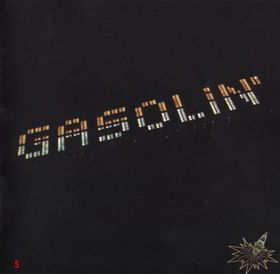
Gas 5 was Gasolin's fifth album in five years and was released in October 1975. From the humble beginnings of their debut album they had developed into a confident arena rock band with this release. In hindsight, Gas 5 may be considered to be their definitive album.

Gør det Noget is Danish rock group Gasolin's seventh studio album. When Gasolin' released Gør det Noget in November 1977, they knew it was their last album. After the ambitious Gas 5 and Efter endnu en dag, Gasolin' decided to make a garage-rock album. Therefore, the service of Roy Thomas Baker was not needed and Gør det Noget was produced by Gasolin' and "Rocco" Tommy Bogs.

Live sådan is a live album by Gasolin', released in June 1976 as a double LP album. It was recorded during their winter tour of Denmark in January 1976.

Live i Skandinavien is a live album by Danish rock band Gasolin' that was released in November 1978.

Derudaf Forever is a live album by Danish rock band Gasolin', released 15 years after it was recorded.

Gasolin' Forever is a double-CD from 1999 that contains two previously released albums: Rabalderstræde Forever (1991) and the live album Derudaf Forever (1993).

Killin' Time was recorded in the spring of 1977 and released in Denmark in the summer of 1978. In Sweden it was released as Tivoli. It was Gasolin's fourth and last album with English lyrics, also acting as the band's final studio album release.
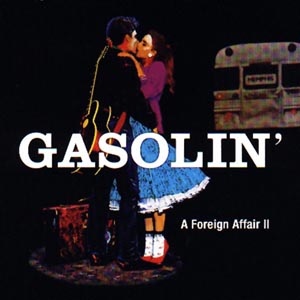
A Foreign Affair 2 is double compilation album released by Danish rock band Gasolin' in 2002.

Stakkels Jim is a studio album by Gasolin' and was released in November 1974. It was the second album to be produced by Roy Thomas Baker.

Gasolin' 2 was released in November 1972 and was received very well by the critics and the public. Musically they would loosen up after the sombre music of their debut album. "På en sommerdag", "Fi-fi dong" and "På banen" are up-tempo and jolly rock songs that would become popular in concert. "Se din by fra tårnets top", "Snehvide" and "Nanna" are slower songs with lyrics inspired by left-wing humanity. The latter song was also released on Kim Larsen's Værsgo (1973). Overall, Gasolin' 2 has a laid back and cosy ambience.

Gasolin' 3 was the third album from Danish rock band Gasolin', released in November 1973. It was the band's first album to be produced by Roy Thomas Baker. Gasolin' 3 was recorded in Rosenberg Studio in Copenhagen with Freddy Hansson as sound engineer.

Efter endnu en dag is the sixth studio album by Gasolin' and was released in November 1976. It was the last Gasolin' album to be produced by Roy Thomas Baker.
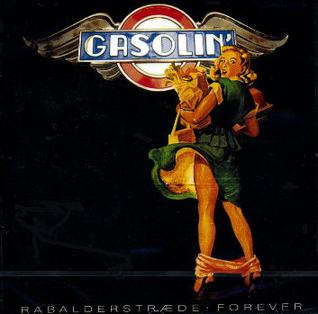
Rabalderstræde Forever is a compilation album by Danish rock group Gasolin' and was released in 1991 on CD and as a double LP.

A Foreign Affair is a double CD compilation album released by Danish rock band Gasolin' in 1997.

What a Lemon is an album by Danish rock band Gasolin', released in August 1976 on Epic Records in the United States, some parts of Europe, Japan and Australia. It is the third of four albums with English lyrics that Gasolin' released between 1974 and 1978 in an attempt to break the international music market. The album received good reviews from leading American rock critics, but lack of airplay and the fact that the record company invested only small efforts in promotion and distribution meant that it never earned the band the public acclaim it was striving for.

The Last Jim is the second album with English lyrics by Danish rock band Gasolin'. It was released in some Western European countries in November 1974 on CBS, simultaneously to its Danish counterpart Stakkels Jim. The songs are identical on the two albums, except for the lyrics. Like on their previous album Gasolin' of the same year, American Leonard "Skip" Malone, helped the band translate the Danish lyrics into English.
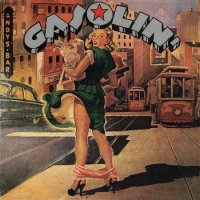
Gasolin' is the first album with English lyrics by rock band Gasolin' in an attempt to win the band recognition outside their native Denmark. It is almost identical to their third Danish album, Gasolin' 3 and was released in some Western European countries in the beginning of 1974 on CBS. It failed to make impact on the charts anywhere, but didn't stop Gasolin' from issuing three more albums in English in the period from 1974 to 1978.




















